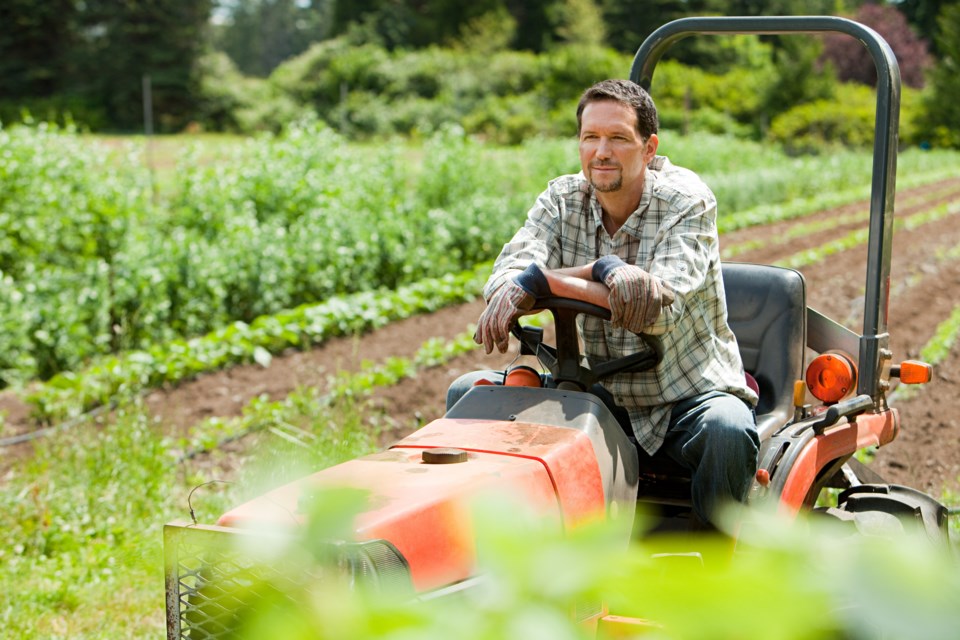“If they want farmers to survive, they need to help us."
A devastating hail storm that poured down in Cawston over a week ago is causing local farmers to call for changes to insurance coverage plans after most of their orchards were ruined.
Castanet met with a group of farm owners and workers on Tuesday, who showed the major damage to their fruit trees.
Sunny Dhaliwal, the owner of Sunny Valley Fruit, acted as spokesperson for the group and said they all have frustrations with trying to recover.
“Last Sunday, there was a storm that came through and damaged crops severely just here in Cawston, about roughly going to be 60 per cent to 80 per cent damage on certain orchards,” he said.
“When there's hail damage on the apple, there's a cut on it and how the apples are going to grow, the cuts going to grow as well. So this apple won't be for market sale, it won't go to the market. And for a grower to grow this apple for the production cost of growing this, it's not feasible for what they're gonna get in return for juice or anything.”
While they all purchased production insurance for their farms, including hail coverage, they said what will be covered isn’t nearly enough to what the damage is costing them.
And the option to purchase hail nets isn’t feasible either.
“That's just out of the budget. You don't see that around here. For a farmer that has a 10 acres, 20 acres or 30 acres, it's hard to put that expense out for what they're gonna get it back out of it,” Dhaliwal added.
The farmers said they’re being told that for insurance to come by and validate the damage, many of them are going to have to leave the damaged fruit on the trees and continue to care for it.
The cost of what they’ll get selling the fruit for juice does not come close to what they’d earn selling it to market, nor will what insurance will pay them out for the damaged crop.
Gurjant Brar, the owner of Brar Fruit Stand & Orchards, said his fruit is damaged almost 100 per cent from the hail storm.
“The insurance company or the government need to think about if they want to see farmers [continue], they need to change the policy,” he said. “The climate is always changing, sometimes we had to buy heat [insurance], sometimes we had to buy rain [insurance] or we get hit by hail.”
With many of the farmers having over 20 years of growing experience in Cawston, Brar said they’ve all seen little changes made to the policy, and if it doesn’t change, many won’t be able to afford to continue.
“I'm paying every year almost $30,000 to get insurance,” Harpal Sidhu, the owner of Lally Orchards said, adding that he was told they wouldn’t be doing an inspection before the harvest and he needed to keep the fruit until then.
“So that's not fair. How can I manage that right? Labour is expensive. I know that I won't make any revenue on it.”
The growers are also concerned about what leaving the fruit on their trees will do to next year’s crop.
“If we keep this contaminated fruit on the trees, it will hurt the food safety,” Ravinder Bains, owner of Bains Orchard, said.
“If we don't rip off this fruit right now, there will be a mildew and there'll be a certain disease which will go to the trunks and they will appear in the next year.”
“There's no point at keeping 80 per cent damage or 60 to 70 per cent damaged hail fruit on the trees to wait for their claim, and then lose that potential good crop for next year,” Dhaliwal added.
The group is hoping they’ll get their voices heard, get to sit down with officials and see changes made to their insurance policy that will make it more “grower-friendly.”
“Growers are really in trouble...[they're] fighting to survive,” Bains said. “Take my word for it, it will be hard for the farmers and everybody is going to leave this business. But if we leave the business, then people won't see the apples on the shelves from the B.C. growers."



